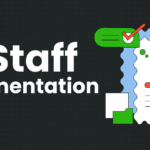Let’s build the future together.
Great ideas need great people. Partner with us to bring your vision to life, or take the first step in your career by joining our team of innovators.

A Solutions Engineer is a role that blends technical expertise with customer interaction, making it one of the most exciting yet under-the-radar jobs today. While many are familiar with traditional engineering roles, the Solutions Engineer offers a unique combination of problem-solving, technology, and communication skills.
These professionals are the bridge between a company’s product and its customers, ensuring that complex technical solutions are tailored to meet specific client needs. Despite its critical importance and dynamic nature, the role of a Solutions Engineer remains relatively unknown to many.
This article aims to shed light on what a Solutions Engineer does, the skills required, and why this role is not only vital but also incredibly rewarding.
If you are passionate about technology and enjoy working directly with clients to solve problems, the position of Solutions Engineer might just be the coolest job you ever heard about.
A solutions engineer supports the sales team by providing technical expertise. They help create sales demonstrations, proofs of concept, and product guides tailored to the customer’s needs.
Their job involves understanding what future customers might need and showing how the software can meet them. They work closely with potential buyers to help them see how the product can achieve their goals.
As part of the sales team, solutions engineers don’t have a sales quota. Instead, they focus on making deals bigger and closing them faster. They are crucial in helping salespeople close accounts quickly and effectively. Iman Maghroori, a noted Solutions Engineer at Salesforce, explains, “Our job is to make deals bigger and close faster, not to train or support customers.”
Recommended Read: How ellow Can Accelerate Your Hiring Process
A Solution Engineer engages directly with clients to thoroughly understand their business goals and technical needs. They start by conducting detailed discussions and meetings to gather all necessary information about the client’s requirements. This involves asking targeted questions to uncover specific pain points and desired outcomes.
Once they have a clear understanding, they design and propose customized solutions that align with the client’s objectives. This process ensures that the solutions not only meet technical specifications but also support the client’s overall business strategy. The aim is to build strong relationships with clients by delivering solutions that drive their success and satisfaction.
A Solution Engineer simplifies complex technical information for clients. They take intricate technical details and translate them into clear, understandable language. This helps clients see the value and benefits of the solutions being proposed.
By working closely with sales teams, Solution Engineers demonstrate how products or services work, often using visual aids and practical examples. They ensure clients understand how the solution fits their needs, making the information easy to grasp and engaging. This effective communication builds trust and helps clients make informed decisions.
A Solution Engineer is responsible for developing creative and customized solutions to address specific client challenges. They analyze the client’s unique problems and design innovative approaches that are tailored to meet those needs. This involves thinking outside the box and leveraging the latest technologies and best practices.
After implementing these solutions, Solution Engineers continually monitor their effectiveness. They gather feedback from clients and use it to refine and improve the solutions, ensuring they remain effective and relevant over time. This process of ongoing innovation and adjustment helps maintain high levels of client satisfaction and demonstrates the engineer’s commitment to providing the best possible service.
Solution Engineers are essential for providing continuous technical support to clients. They help clients resolve any issues that arise with the implemented solutions, ensuring minimal disruption to the client’s operations. This includes diagnosing problems, offering quick fixes, and guiding clients through complex technical processes.
By being the main point of contact for any technical inquiries, Solution Engineers demonstrate a strong commitment to customer service and satisfaction. They ensure that clients feel supported and confident in using the provided solutions, fostering a positive and long-term relationship.
A Solution Engineer must integrate a diverse set of skills to excel in their role. This includes technical expertise in software, hardware, and systems to design and implement effective solutions. Equally important are their communication and interpersonal skills, which are essential for interacting with clients, understanding their needs, and explaining technical concepts clearly.
Problem-solving skills are crucial for innovating and adjusting solutions to fit client requirements. Additionally, they need strong project management abilities to coordinate efforts across teams and ensure timely delivery of solutions. This blend of skills enables them to manage expectations and achieve high levels of client satisfaction.
Recommended Read: Why Ellow Is The Best Platform To Hire Freelance Developers?
Below are some essential skills that contribute to the success of a Solutions Engineer:
Being a good listener involves more than just hearing words; it’s about actively engaging with what the other person is saying. This means paying full attention, avoiding interruptions, and showing empathy. Take notes to capture key points and repeat back what you’ve heard in your own words to confirm understanding.
This technique, known as reflective listening, demonstrates that you value the speaker’s perspective and are committed to addressing their concerns. Good listening helps build trust, ensures clear communication, and enables you to design solutions that precisely meet your client’s needs, ultimately leading to more successful outcomes.
Storytelling in a business context involves sharing relevant and engaging narratives to communicate complex ideas or solutions effectively. As a Solutions Engineer, storytelling helps you illustrate how your product has benefited other clients, making it easier for potential clients to visualize its value. By weaving real-world examples and success stories into your conversations, you build trust and rapport with clients.
Effective storytelling also simplifies technical concepts, making them more relatable and understandable. This approach not only highlights your expertise but also shows empathy and understanding of the client’s challenges, ultimately fostering a stronger connection and confidence in your solutions.
“Sales & Negotiation” involves understanding and articulating the value of your product or service to potential clients. It requires a deep knowledge of your company’s offerings and the ability to align them with the client’s needs. Effective sales techniques include building rapport, crafting compelling pitches, and addressing objections.
Negotiation skills involve finding mutually beneficial terms, being flexible, and confidently handling discussions about pricing and contract details. Mastery of these skills ensures you can close deals that satisfy both the client and your company, fostering long-term business relationships and driving revenue growth.
Interpersonal and communication skills are essential for effective interaction and relationship-building. This involves introducing yourself confidently and engagingly, clearly articulating your ideas, and knowing when to pause and listen actively. It’s important to clarify points and ensure mutual understanding, breaking the ice to create a comfortable atmosphere, and reading the room to adapt your communication style.
These skills help you connect with clients and colleagues, foster trust, and facilitate smooth, productive conversations. Whether virtual or face-to-face, mastering these abilities is crucial for anyone aiming to succeed in technical sales and other collaborative fields.
Proficiency in programming and computing is essential for a Solutions Engineer. This involves understanding and using various programming languages such as Python, Java, or C++, tailored to the specific needs of the company.
Additionally, being adept in software development principles, algorithms, and data structures is crucial. Solutions Engineers must also be familiar with different operating systems, databases, and software tools to design, develop, and troubleshoot solutions effectively. Keeping up-to-date with the latest technologies and best practices in the industry ensures they can deliver robust, efficient, and scalable solutions to meet client needs.
IT Infrastructure refers to the composite hardware, software, network resources, and services required for the operation and management of an enterprise IT environment. It includes physical components like servers, data centers, and networking hardware, as well as software applications and services such as databases, cloud platforms, and backup solutions.
IT infrastructure is essential for enabling business operations, supporting communication, and ensuring data management and security. Proficiency in managing and optimizing IT infrastructure involves understanding public cloud services (e.g., AWS, Google Cloud, Microsoft Azure), virtualization, network configuration, and the principles of scalable and resilient system design.
Recommended Read: ellow.io enters remote hires market with
A Solutions Engineer brings invaluable technical expertise to the sales team, ensuring clients’ needs are accurately understood and addressed. Here are the key benefits they offer:
Solutions Engineers collaborate closely with sales, engineering, and support teams to propose tailored solutions, enhancing the overall client experience. This personalized approach ensures that clients feel heard and receive solutions that precisely meet their needs.
By bridging the gap between technical and non-technical stakeholders, Solutions Engineers foster effective communication and smoother project implementations. This leads to more efficient processes and fewer misunderstandings, ultimately saving time and resources.
Solutions Engineers stay updated on the latest technology trends and best practices. Their commitment to continuous learning ensures they deliver innovative and effective solutions to clients, keeping your offerings at the forefront of industry standards.
Experienced Solutions Engineers bring a wealth of knowledge from past projects and achievements, demonstrating their capability to solve complex problems. This experience builds their credibility and value within the organization, making them indispensable team members and trusted advisors to clients.
Solutions Engineers employ strategic thinking to align client needs with technical solutions. By acting as a liaison between clients and internal teams, they ensure clear communication and understanding of technical concepts, leading to informed decisions that benefit both the client and the organization.
Solutions Engineers play a crucial role in helping sales teams close deals by translating complex technical details into understandable terms for clients. Their ability to demonstrate the practical benefits of products or services helps clients see their value, driving sales success.
Solutions Engineers provide continuous support throughout a project’s lifecycle, offering technical guidance and troubleshooting. Their involvement ensures projects run smoothly, leading to higher client satisfaction and long-term relationships. This ongoing support is key to maintaining successful project outcomes and fostering future collaborations.
Check this video out: Solutions engineer
Solution engineers typically earn competitive salaries, generally ranging from $111,000 to $185,000 annually in the United States. These figures reflect the average earnings across various industries and companies.
However, in leading tech firms such as Google, Meta, Amazon, LiveRamp, or VMWare, solution engineers may earn significantly higher salaries, sometimes reaching up to $265,102 per year. Earnings can vary based on factors like experience, location, and specific skills demanded by the role.
Recommended Read: Case study: How ellow.io Helped a Leading Firm Recruit 20+ Full-Stack Developers in Just Three Weeks!
The role of the Solutions Engineer is continuously transforming as new technologies and data-driven insights reshape industries worldwide. Future Solutions Engineers will not only possess advanced technical knowledge but also excel as strategic thinkers, guiding organizations through complex challenges with innovative solutions. For individuals equipped with ambition and the necessary skills, the Solutions Engineer role offers a promising career path filled with opportunities to make a substantial impact on businesses and society at large.
A Solutions Engineer designs and implements technical solutions to meet specific customer needs. They bridge the gap between sales and engineering, ensuring products or services align with client requirements.
Essential skills for a Solutions Engineer include technical proficiency in relevant software or hardware, strong problem-solving abilities, effective communication skills to liaise between teams and clients, and a strategic mindset to design optimal solutions.
Solutions Engineers can work across various industries such as software development, telecommunications, cloud computing, cybersecurity, and more. Their versatility allows them to adapt their expertise to diverse technological landscapes.
Solutions Engineers have diverse career paths, ranging from specializing in specific technologies or industries to advancing into leadership roles such as Solutions Architect or Technical Sales Manager. Their expertise is increasingly valued in the tech-driven global economy.
Typically, becoming a Solutions Engineer requires a combination of education (often in computer science or a related field), relevant work experience (such as in software development or technical support), and proficiency in key technical skills. Many professionals also enhance their career prospects through certifications and continuous learning in emerging technologies.

Ten Real-World Ways Enterprises Are Using AI Teams to Build Faster in 2026

The Future of Tech Teams and How AI Augmented Engineering Is Reshaping Product Delivery

Staff Augmentation: A Complete Guide to Scaling Tech Teams
Please feel free to share your thoughts and we can discuss it over a cup of tea.
Get a quote
Ten Real-World Ways Enterprises Are Using AI Teams to Build Faster in 2026

Six Things to Consider When Hiring Remote Talent

ellow.io enters remote hires market with AI-based screening process